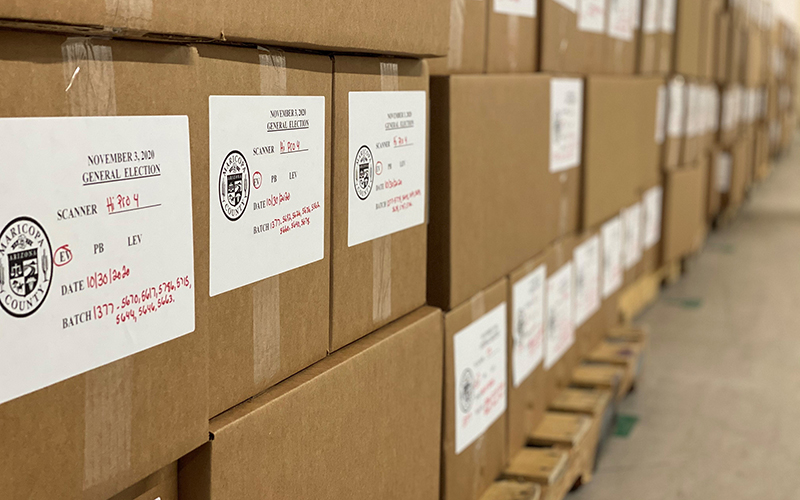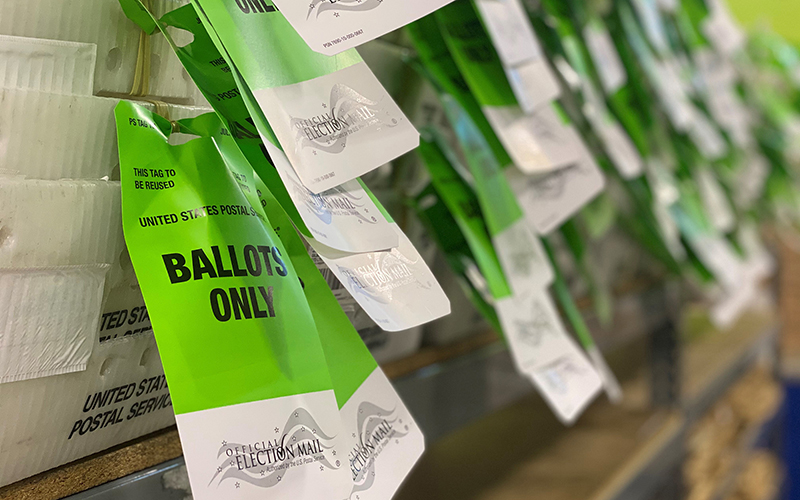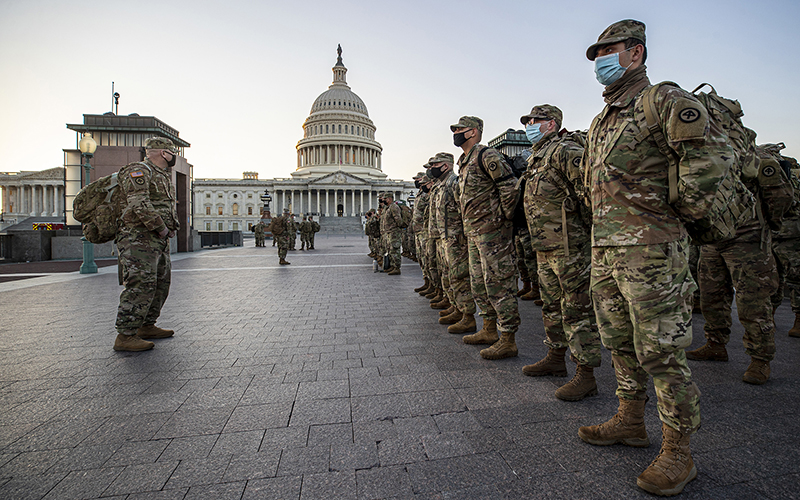WASHINGTON – Maricopa County’s chief information security officer said the county was able to handle cyberthreats to the 2020 elections, but handling public perception of the results in the face of rampant social media misinformation has been more of a challenge.
“We all saw in 2020 that the vast majority of what was communicated through media, social and traditional, just frankly wasn’t true, but it led itself toward giving the sense that there was fraud,” said Lester Godsey, the county CIO. “But there’s no evidence of that across the board.”
Godsey’s comments were echoed by federal election security officials, who said the 2020 elections were secure but one of the lessons learned is that “perception is reality”: Government agencies will have to do a better job of fighting misinformation in the future, they said.
“CISA (the Cybersecurity and Infrastructure Security Agency) will begin working with election officials specifically on how they are tracking information, and how they are being transparent about their election safety measures,” said Geoff Hale, a senior adviser to the federal agency, who was on the panel.
The discussion was taped in early April but aired Thursday with Arizona embroiled in a feud between Maricopa County officials and the state Senate, whose Republican leaders have ordered a controversial, headline-grabbing audit of the county’s elections. This despite the fact that the results were verified in two separate forensic audits ordered by the county in February.
Even though the Godsey’s comments were taped before the actual counting of ballots by private firm Cyber Ninjas began, critics of the audit said they are more relevant today.
“We’re unsure of what the officials’ motives are, but Maricopa County has taken the position to spread the truth on as many platforms as possible,” said Fields Moseley, the county’s communications director. “The bottom line is the election was run with integrity, but we can’t make people believe that, they’re going to believe whatever they want.”
The audit fight boiled over onto official social media last week, when state Senate President Karen Fann wrote the Maricopa supervisors demanding answers to “three serious issues” that had been found during the audit.
Before the county could answer the letter, however, the auditors tweeted out a claim that the county had “deleted a directory full of election databases” before turning election equipment over.
That was quickly spun into a claim by former President Donald Trump that the county’s entire election database had been deleted.
That was too much for county officials, most of whom are Republican, who sent Fann a blistering letter that called the “accusations false, defamatory and beneath the dignity of the Senate.” The letter urged Fann to abandon the audit investigation saying, “it’s harming all of us.”
The county then responded to the auditors in kind, tweeting that the questions posed by “the Senate’s so-called ‘auditors'” demonstrated a “lack of election law knowledge” and speaks “more to their ineptitude than it does to the integrity of our dedicated employees.” To drive the point home, the county created the hashtag, #RealAuditorsDont.
In an editorial Wednesday for CNN, Maricopa County Recorder Stephen Richer criticized the Senate and Cyber Ninjas, “who had no election experience prior to reviewing one small county in the 2020 election,” for making – and then amplifying – false claims about the election.
“The truth is that there is no solid evidence of significant fraud in Maricopa County’s Nov. 3 election. There is no solid evidence that the election in Maricopa County was stolen from former President Trump,” said Richer, a Republican. He urged other Republicans to “speak the truth” and protect the integrity of future elections.
Calls seeking comment from Fann, Cyber Ninjas and former Arizona Secretary of State Ken Bennett – who is serving as liaison between the firm and the Senate – were not immediately returned Thursday.
Despite the fog of uncertainty that has been created around the election results, Godsey, Hale and Cynthia Kaiser – a section chief with the FBI’s cyber division – all said they have no evidence that fraud affected the 2020 election results.
Kaiser pointed to a March declassified report by the National Intelligence Council that said there was no evidence foreign actors tried to tamper with election processes like registration, voting or counting of ballots. But there were efforts by Russia, Iran and, to a lesser extent by Hezbollah, Cuba and Venezuela, to influence the elections by promoting one candidate over the other or to undermine public confidence in the elections.
That included efforts to amplify and create fake content on social media, by both foreign and domestic groups, said Kaiser and the others.
In Arizona, Godsey said that showed up as “Sharpiegate,” the claim during the election that Sharpie pens would somehow invalidate votes by bleeding through the ballot. The charge was quickly addressed by Secretary of State Katie Hobbs, but not before the claim went viral on social media.
“There’s always going to be a segment of the population that rejects the message from the messenger, especially when the messenger is the federal government,” Hale said.
Kaiser said there is only so much the government can do, but that it needs to encourage voters to step up and do their part.
“What we can learn from this is we all have to be better consumers of social media and the information we are taking in,” she said.



